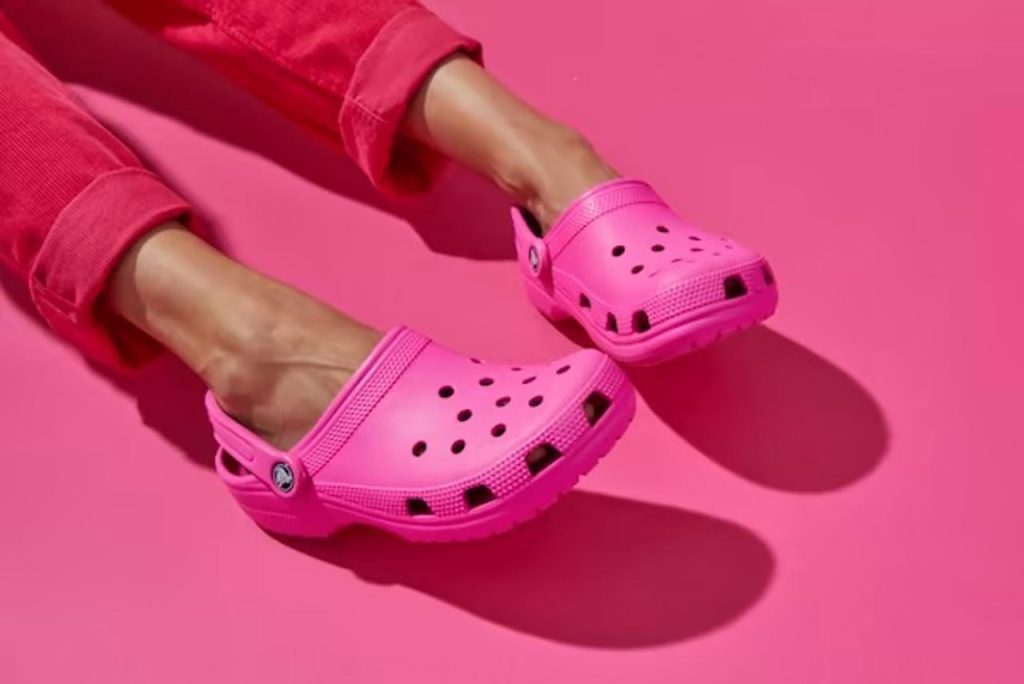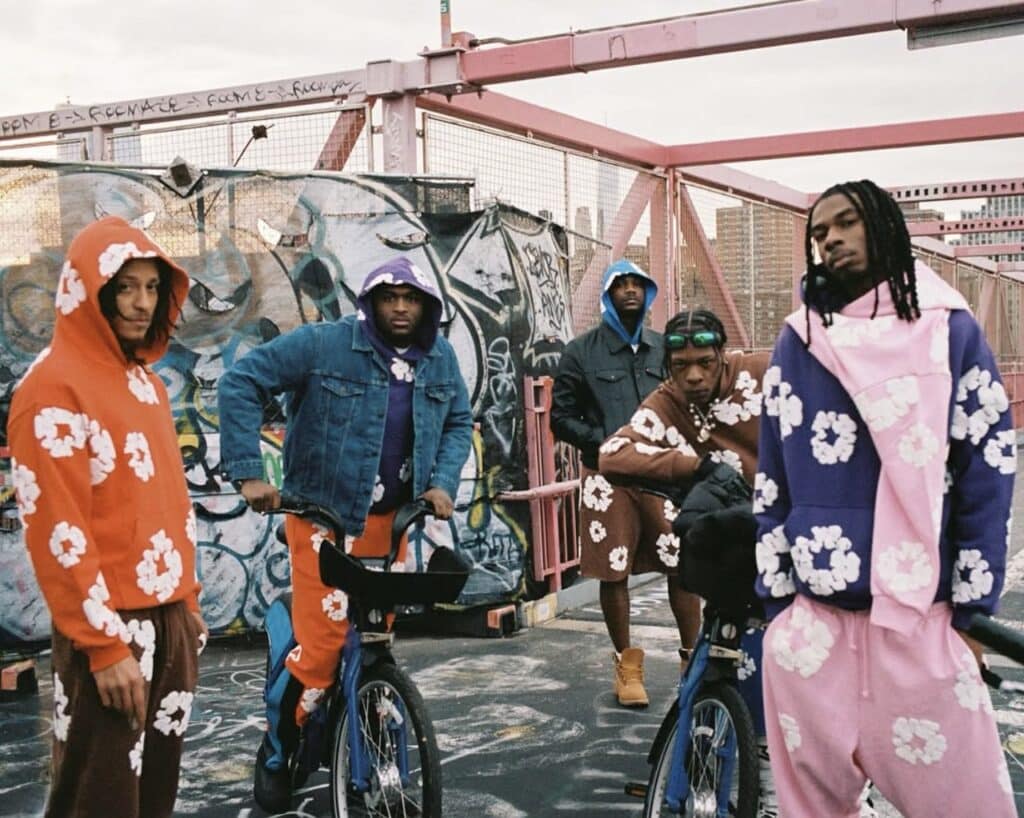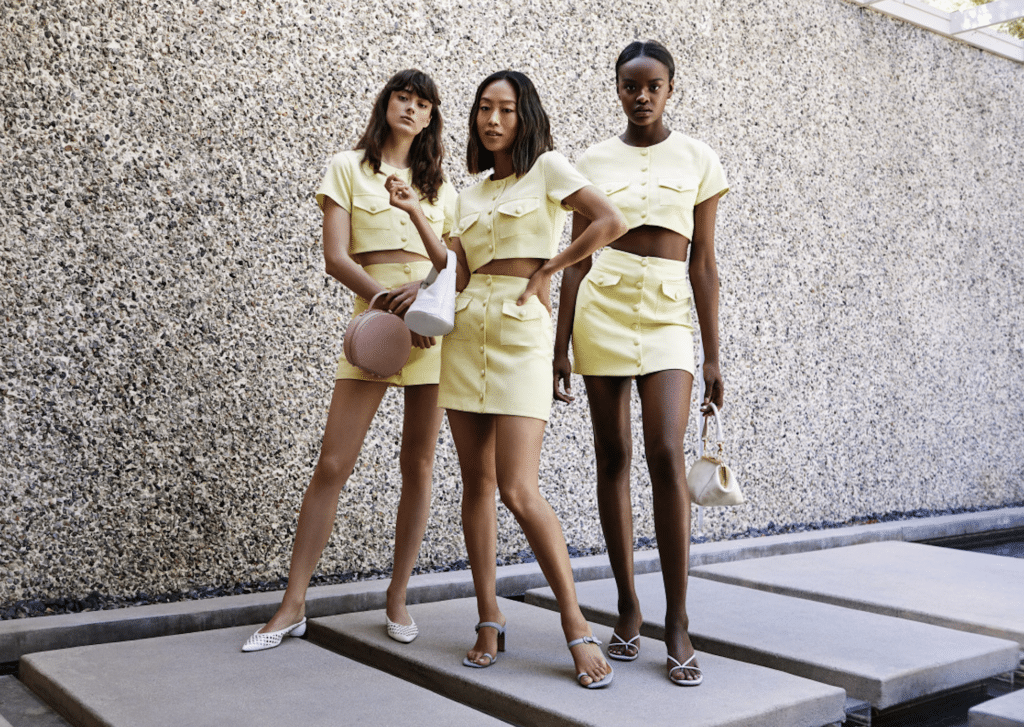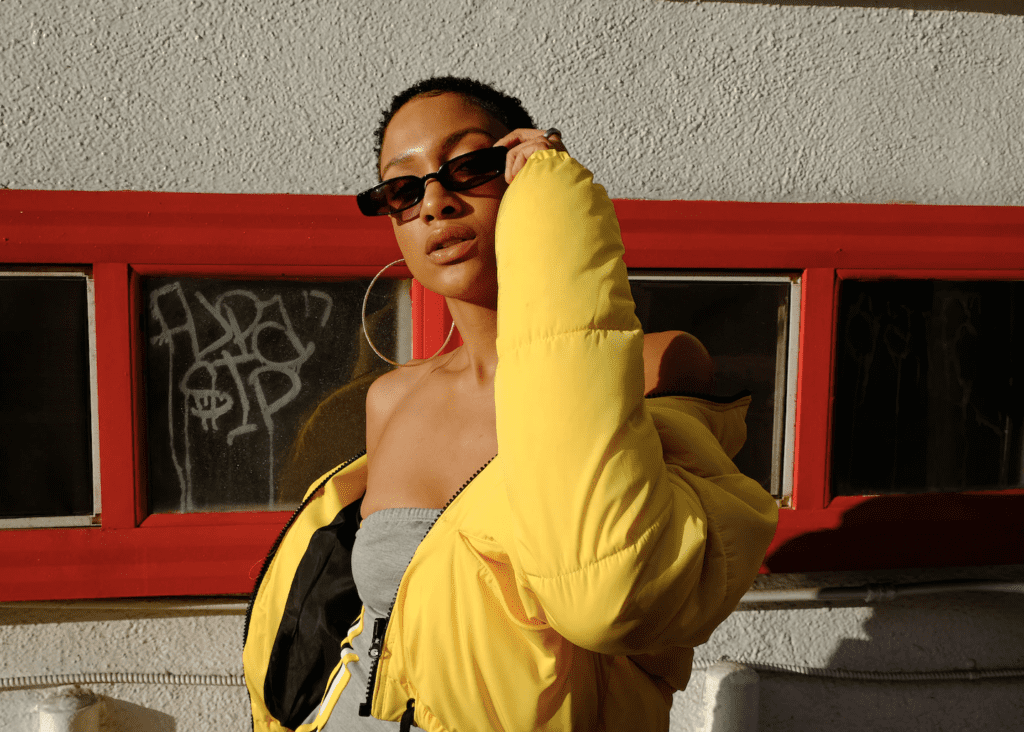Riding a striking wave of demand that intensified amid the COVID-19 pandemic, consumer desire for Crocs is “stronger than ever” on a global basis, according to the Bloomfield, Colorado-based company’s CEO Andrew Rees. First quarter revenues for the foam clog-maker grew by 64 percent to $460.1 million up from $281.2 million a year earlier, topping analyst expectations of $415 million for the 3-month period. The recurring rise in demand for Crocs helped the brand to achieve “record revenues and profitability, with growth in all regions and all channels” for Q1, with more growth expected for the rest of the year. At the same time, the widespread embrace of Crocs bringing with it a slew of copycat products, which the footwear brand is looking to stop.
In the complaint that it filed with the U.S. International Trade Commission (“ITC”) on June 8, Crocs claims that two dozen companies – from Skechers to Loeffler Randall – are engaging in the unlawful importation and sale of “certain footwear products and packaging that violate registered trademarks used in connection with certain Crocs shoes,” including Crocs’ registered trademark rights in its “CROCS” word mark, as well as “the three-dimensional configuration of the outside of an upper of a shoe, the textured strip on the heal of the shoe, the decorative band along the length of the heel strap.”
As Crocs asserts in its 175-page ITC complaint, since it launched in 2002, it “has sold nearly 800 million pairs of shoes in over 90 countries, and garnered widespread recognition of its comfort-driven, revolutionary footwear, making [it] one of the ten largest non-athletic footwear brands in the world.” While the “iconic Classic Clog was conceptualized during a sailing trip and originally presented to consumers as a boat shoe, soon after, it became apparent that the shoe appealed to consumers of all demographics seeking fun and friendly, comfortable footwear,” and by 2005, the classic Crocs design “had become recognized as a new standard-bearer in the fashion footwear, professional footwear, and casual lifestyle footwear markets.”
Addressing the well-established presence of its footwear across the globe, Crocs points to collaborations with the likes of “modern pop artists, [such as] Justin Bieber and Post Malone, Los Angeles high-fashion apparel brands Pleasures and Chinatown Market, the luxury department store Barney’s New York, and fast-food chain KFC,” and famous fans that range from Jack Nicholson and Whoopi Goldberg to Shia LaBeouf and Jennifer Garner. At the same time, Crocs claims that the “unusual and distinctive appearance” of its clog-style shoe “is, itself, responsible for generating much of the publicity that [the company] receives,” having caused “an uproar in the fashion footwear world [and] making the classic Crocs shoe a source of unending debate.”
The hype surrounding the footwear brand’s offerings is so great that Crocs alleges that “the Classic Clog garnered nearly 25 billion observed media impressions in 2020, alone.”
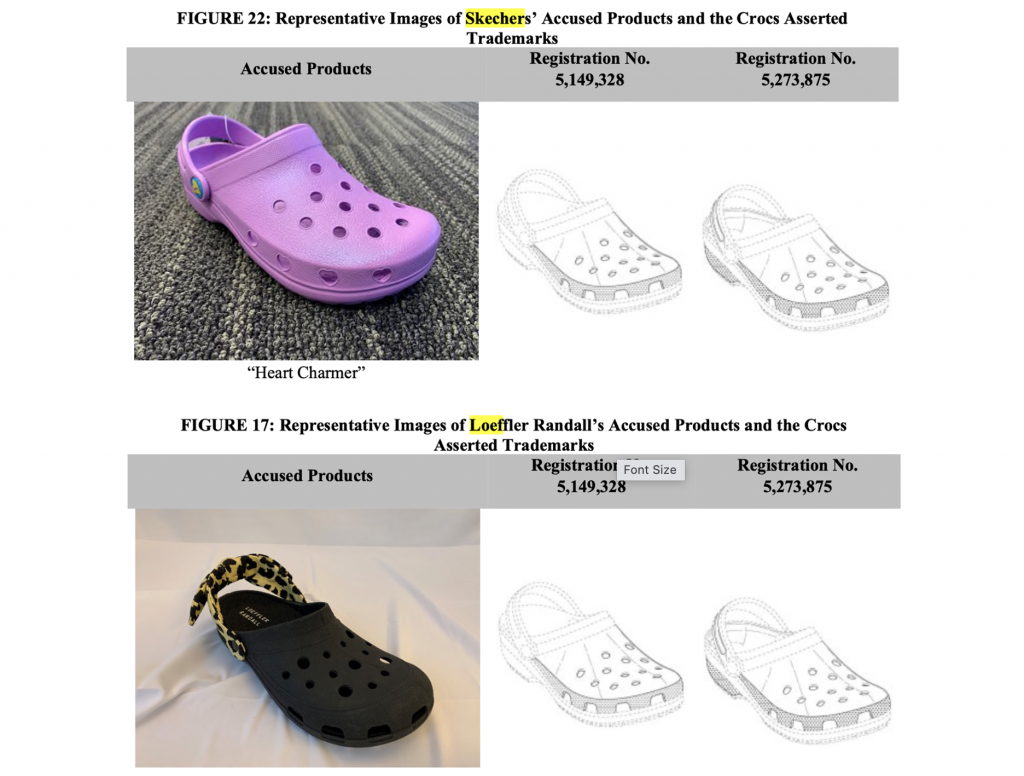
With the foregoing in mind, and as a result of its consistent use of its trademarks over the course of two decades, including the “one-of-a-kind ornamental design characteristics that give the overall impression of a fun and distinctively quirky clog-like shoe,” Crocs alerts the ITC that its marks have become “widely recognized by the general consuming public of the U.S. as a designation of source of the footwear products that are manufactured, sold, distributed, and promoted Crocs.”
While there are “virtually infinite number of different, non-infringing footwear styles in existence today,” and the lack “any actual competitive need to use the Crocs marks in commerce,” Crocs claims that a number of competitors have taken to “intentionally and frequently” replicating its “unique and recognizable” footwear, “not due to competitive need, but because of the significant goodwill that the Crocs marks have accumulated over the past two decades during their use by Crocs.”
In light of its “keen interest in protecting [its trademarks] from the kind of confusion and dilution that occurs from the unlicensed use of its marks by knockoffs that are labeled with the name of the knockoff’s manufacturer,” Crocs claims that it goes to great lengths to fend off copycats and ensure that consumers are not misled about the source of lookalike products. For instance, Crocs asserts that it strictly limits its licensing deals. In fact, the company claims that it has only licensed the trademark for the design of its classic clog on one occasion: in connection with a “licensing partnership” with Balenciaga in 2017, which was a “smashing success,” with the $850 platform Crocs selling out “during pre-release before they were even officially available for purchase.” Beyond that, Crocs asserts that the “scale” at which its marks are infringed “requires constant attention,” and as a result, “each year, customs and other enforcement officials around the world seize hundreds of thousands of shoes that improperly bear” its trademarks.
“The protection of Crocs’ trademarks is essential to continuing the company’s mission to make the world a more comfortable and happier place, one pair of shoes at a time,” the company claims, and against that background, Crocs points to the various individual respondents, all of which have either made use of the “Crocs” name in connection with their own lookalike – but unaffiliated – products and/or made and sold footwear that is “overwhelming similar” to Crocs’ trademark-protected classic clog design without Crocs’ authorization, thereby, giving rise to its claims of trademark infringement and dilution.
As a result of such widespread “intentional” infringement, which is likely to confuse consumers as to the source of the unauthorized products, and which will “continue to cause substantial injury to Crocs, including at least substantial injury to the goodwill and reputation for quality associated with [its trademarks],” Crocs is seeking a General Exclusion Order from the ITC in order to exclude from entry into the U.S. “all imported shoes that violate Crocs rights in [its] asserted trademarks.” More than that, Crocs is also seeking cease-and-desist orders directing the respondents “to halt the importation, marketing, advertising, demonstrating, warehousing of inventory for distribution, sale, and use of imported articles in the U.S.”
In a statement in connection with the filing, Crocs notes that the proceeding follows from a 2006 matter that it initiated with the International Trade Commission (“ITC”) “relating to its design and utility patent rights for the Crocs Classic Clog,” and in which Crocs sought – and the ITC issued – a general exclusion order barring the importation of products infringing its patent rights. Speaking to the case at hand, CEO Andrew Rees said that “by blocking the importation and sale of trademark-infringing footwear, we can ensure with confidence that our product DNA is fully protected while continuing to provide an authentically Crocs experience to our customers and consumers”
The case is In the Matter of Certain: Casual Footwear and Packaging Thereof, 3551 (ITC).







